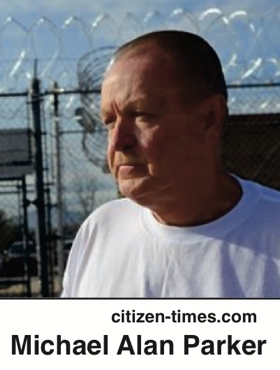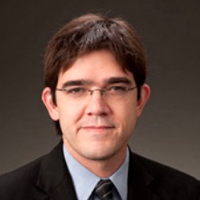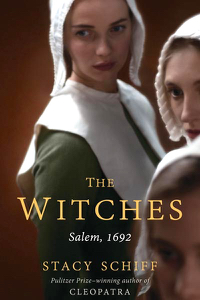Rascals case in brief
In the beginning, in 1989, more than 90 children at the Little Rascals Day Care Center in Edenton, North Carolina, accused a total of 20 adults with 429 instances of sexual abuse over a three-year period. It may have all begun with one parent’s complaint about punishment given her child.
Among the alleged perpetrators: the sheriff and mayor. But prosecutors would charge only Robin Byrum, Darlene Harris, Elizabeth “Betsy” Kelly, Robert “Bob” Kelly, Willard Scott Privott, Shelley Stone and Dawn Wilson – the Edenton 7.
Along with sodomy and beatings, allegations included a baby killed with a handgun, a child being hung upside down from a tree and being set on fire and countless other fantastic incidents involving spaceships, hot air balloons, pirate ships and trained sharks.
By the time prosecutors dropped the last charges in 1997, Little Rascals had become North Carolina’s longest and most costly criminal trial. Prosecutors kept defendants jailed in hopes at least one would turn against their supposed co-conspirators. Remarkably, none did. Another shameful record: Five defendants had to wait longer to face their accusers in court than anyone else in North Carolina history.
Between 1991 and 1997, Ofra Bikel produced three extraordinary episodes on the Little Rascals case for the PBS series “Frontline.” Although “Innocence Lost” did not deter prosecutors, it exposed their tactics and fostered nationwide skepticism and dismay.
With each passing year, the absurdity of the Little Rascals charges has become more obvious. But no admission of error has ever come from prosecutors, police, interviewers or parents. This site is devoted to the issues raised by this case.
On Facebook
Click for earlier Facebook posts archived on this site
Click to go to
Today’s random selection from the Little Rascals Day Care archives….
Click for earlier Facebook posts archived on this site
Click to go to
Today’s random selection from the Little Rascals Day Care archives….
N.C. judge throws out ‘ritual abuse’ conviction
 Aug. 28, 2014
Aug. 28, 2014
“ASHEVILLE, N.C. – After more than 20 years behind bars, Michael Alan Parker, 57, walked past the barbed wire gates of Craggy Correctional Center and looked out at the mountain skyline on Tuesday morning.
“Convicted of sexually abusing his three children in a 1994 trial charged with allegations of Satanism, Parker was freed after Superior Court Judge Marvin Pope ruled Monday that the medical evidence would no longer be interpreted as proof of sexual abuse. Pope vacated Parker’s sentence and dismissed the charges against him….
“Parker was first jailed in February 1993, when he and several codefendants were accused of abusing Parker’s three children in and near their home in Saluda, N.C.
“At trial in 1994, Parker’s children testified in graphic detail about abuse that prosecutors labeled ritualistic. The 9-year-old girl testified that she had been sexually abused in a garage behind their home. She said a fire was burning inside a circle made of rocks, and she heard people chanting in soft voices.
“In an emotion-charged atmosphere, then-Assistant District Attorney Mike Edwards called the trailer park where the family lived ‘Sodom and Saluda’ and quoted the Bible in his statements to the jury….”
– From “Henderson County man walks free after 20 years in prison“ by Renee Bindewald in the Spartanburg (S.C.) Herald-Journal
Congratulations are in order for Mr. Parker and his appellate lawyer, Sean Devereux, who had labored doggedly (and often pro bono) on his behalf since 1999.
The similarities to Andrew Junior Chandler’s case are obvious, although the “Sodom and Saluda” allegations in the Parker case were rooted in domestic turmoil rather than in the way-too-familiar day-care fantasy. Most notable is Judge Pope’s recognition that the type of medical validation of abuse presented at trial has been persuasively discredited – see also, the physician’s recantation that set Fran and Dan Keller free.
Will Pope’s decision prove to be an aberration? Or does it presage the breakthrough Junior Chandler has for so long been denied?
Who killed the ritual abuse day care panic?
 April 9, 2012
April 9, 2012
“Where do epidemics go when they die?…. Have all the sadistic pedophiles closed down their day-care centers?”
– From “Mistakes Were Made (But Not by Me)” by Carol Tavris and Elliot Aronson
I asked Mary de Young, author of “The Day Care Ritual Abuse Moral Panic,” whether this epidemic might have gasped its last in Edenton as a result of “Innocence Lost.”
“Ofra Bikel certainly pounded a nail in its coffin,” De Young said. “Her excellent work on the Little Rascals case appeared after the last day care ritual abuse case was prosecuted, but she created a reason to be profoundly skeptical of all the cases that came before.
“I would give a lot of credit to Debbie Nathan (Village Voice) and Dorothy Rabinowitz (Wall Street Journal) for bringing an end to this craziness, but to be honest I think the moral panic really collapsed under its own weight – i.e., it was impossible to sustain these allegations in the absence of evidence, as well as to sustain the suspended disbelief that was required.”
This time, will NC Bar tell DAs to play fair?

cheshireparker.com
Brad Bannon
April 20, 2016
“‘If prosecutors have an ethical duty to avoid wrongful convictions, then they should have some sort of ethical duty to remedy wrongful convictions,’ said attorney Brad Bannon of the North Carolina Bar’s ethics committee.
“He wants North Carolina to adopt a rule recommended by the American Bar Association, requiring prosecutors to come forward if they find ‘new, credible and material evidence’ that an innocent person is serving time. Thirteen states have adopted the post-conviction rule. North Carolina isn’t among them.
“The State Bar rejected the rule several years ago but recently appointed a committee to reconsider….”
– From “Rule targets prosecutors who don’t reveal innocence evidence” by Martha Waggoner of the Associated Press (April 16)
Given prosecutors’ disproportionate influence on the state bar, to even “reconsider” the disclosure rule suggests the recent stream of unbecoming publicity hasn’t gone unnoticed.
![]()
Were tales any taller in Salem than in Edenton?
 Dec, 4, 2016
Dec, 4, 2016
“The testimony [in the Salem witch trials] is full of tall tales, unless you happen to believe – as one woman confessed, having vowed to tell the truth, the whole truth, and nothing but the truth – that she flew on a stick with her church deacon and two others to a satanic baptism, and that she had, the previous Monday, carried her minister’s specter through the air along with her, having earlier conferred in her orchard with a satanic cat….”
– From “The Witches: Salem, 1692” by Stacy Schiff (2015)
![]()











0 CommentsComment on Facebook